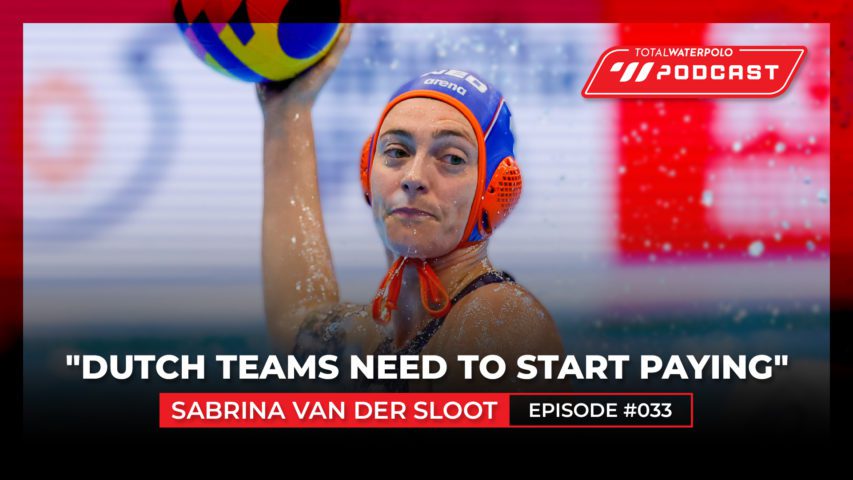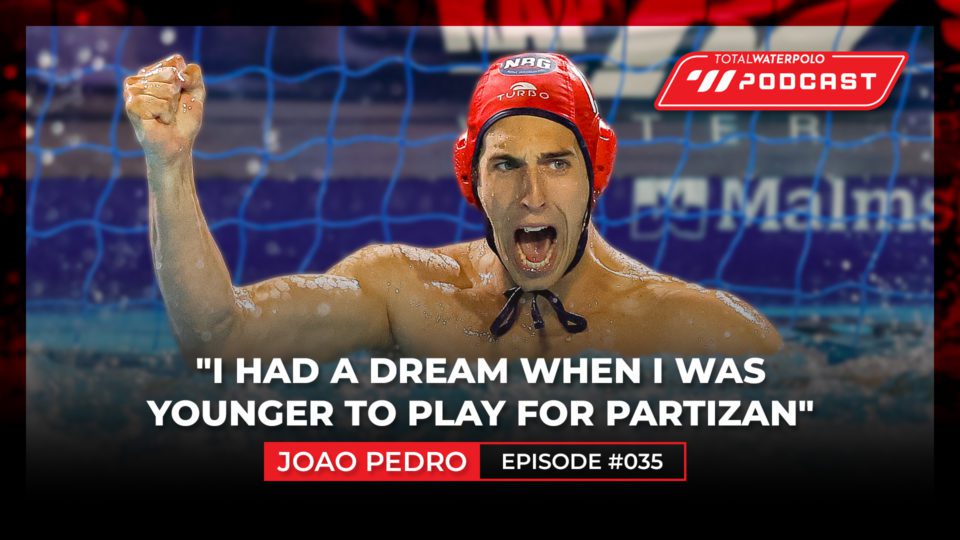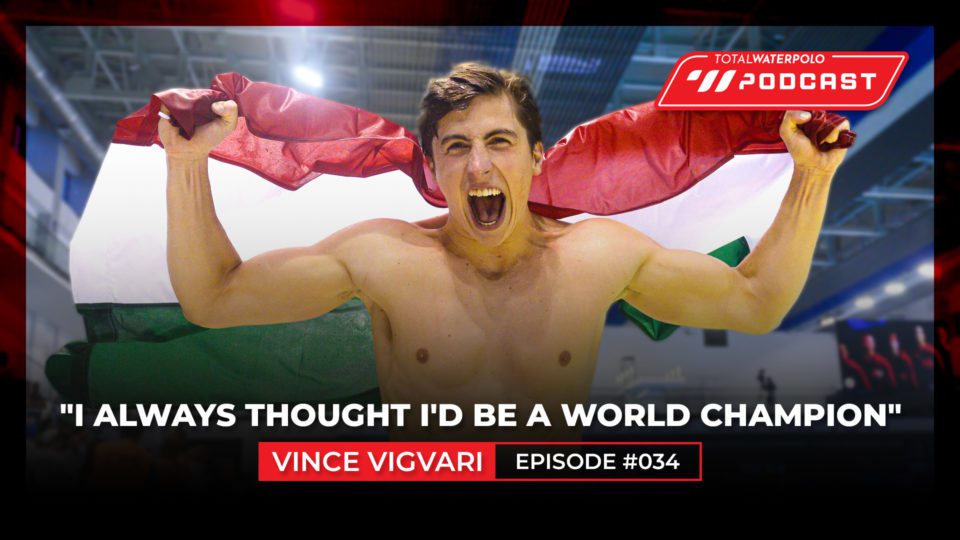Another week and another World Champion on the Total Waterpolo Podcast, and this week it was Sabrina Van der Sloot who joined us for a fascinating talk with one of the best players of her generation.
As Sabrina Van der Sloot reflects on a phenomenal tournament from the Netherlands, she humbly acknowledges the growth that has propelled them to this pinnacle of success.
“Honestly, I think we’ve grown a lot since the last season with the national team,” she reveals. The dedication and evolution were palpable throughout the tournament, and Sabrina admits that thoughts of the world title grew with every victory. “When we started winning all our games and playing like we were really confident it crossed my mind that we could be world champions this time.”
One of the key elements that propelled the Netherlands women’s water polo team to their championship glory was their newfound mental stability and strength. Sabrina praises Evangelos Doudesis, the Netherlands coach, and his unwavering focus on this crucial aspect of the game. ” I really think his way of training us is really helping us during the games,” she states. “He’s not the type of coach who will be very met. At you about something you do only if you do something without a thought behind it”
Unity and friendship, as it turned out, was the winning formula in Van der Sloot’s opinion.
“I think now, even outside of the water, we are just really a group of friends,” she shares. “I think everyone feels really comfortable and respected inside and outside of the water and. I Think this is a big change”
With the World Championship victory under their belt, the Netherlands has set their sights on an even grander prize – Olympic gold in Paris. Sabrina emphasises their commitment to this goal, acknowledging that their triumph in Fukuoka was merely a stepping stone in their journey:
“We are really committed to winning a medal at the Olympics and it’s a goal of the team. For me personally (winning the world championships) is not the end station. You know, it’s like a good step in order to fulfil the big goal that we have. Directly after we won this medal we said to each other ‘Yeah well this is really nice, but now we have to keep working’ and we because now we are the team to beat
Van der Sloot has played all across Europe, but on the podcast she draws particular inspiration from her time spent in Sabadell, where she had the privilege to play alongside legends of the sport. “I think that’s where I learned how to win,” she reflects. Her teammates’ experience and unwavering belief in themselves and their abilities served as a blueprint for success, imparting invaluable lessons that have proven instrumental in her journey.
“They’re forcing us to be better everyday” – Van der Sloot on Mataro
Even amidst the celebratory atmosphere of victory, Sabrina remains an outspoken advocate for gender equality within the sport. She passionately addresses the discrepancy in pay and opportunities between men’s and women’s water polo – particularly in her home country. “I think that’s something that they should start doing if they want to keep players from the national team playing in the Netherlands,” she asserts. Sabrina’s call for equal investment and recognition for women’s water polo underscores the imperative of creating a level playing field and fostering the growth of the sport as a whole.
Sabrina’s dedication to equality extends beyond player dynamics to the realm of officiating. She highlights the need for equal representation of female referees in both men’s and women’s tournaments. “And I mean, if you’re good enough to officiate semis or quarter finals or finals for the women’s, why are you not good enough for the men’s?” she queries.
“I’m not saying women should only referee women and men only referee men. I am saying it should be equal. Why are they not whistling the men’s games? I don’t understand what I mean in my eyes. It’s like saying oh these referees are maybe not good enough for the men’s game or that women’s games are easier to whistle which in my opinion is not true. Maybe the game is not as fast as the men’s game but it’s more difficult because we have a suit and you can grab wherever you want. So it’s harder to make good decisions. So it’s not true that it is easier.”
Sabrina’s call for transparency and fairness in referee assignments underscores her commitment to shattering gender-based biases and promoting inclusivity within the sport.
Find all episodes of the Total Waterpolo Podcast here
Follow us on Facebook, Twitter and Instagram.
For more video content, subscribe to our Youtube Channel and Tik Tok account









